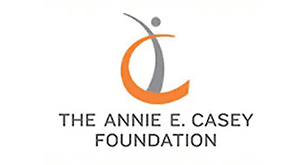PolicyLink, a national research institute, is leveraging the skills and tools of Results Count®. The Casey Foundation’s unique approach to leadership development helps PolicyLink undertake initiatives aimed at achieving equitable results for the 100 million people in America living in or near poverty — the majority of whom are people of color.
One of seven Results Count hubs, PolicyLink has infused this data-driven approach into its strategy to spur large-scale change and spread results-oriented culture to external partners.
INCORPORATING RESULTS COUNT INTO POLICYLINK’S OPERATIONS
Central to PolicyLink’s work is partnering with hundreds of grassroots organizations in cities, suburbs, rural communities and tribal lands. Instead of tailoring a grant proposal to meet a foundation’s programmatic objective, PolicyLink wants to ensure that funding opportunities are aligned with an organization’s long-term goals.
Results-Based Facilitation™, which helps catalyze meeting participants and holds them accountable to their commitments, informs virtually every meeting at PolicyLink. “If you’re on the agenda,” says PolicyLink Executive Vice President Ashleigh Gardere, “you present your results frame in the broader organizational context before talking about your work.”
Results Count also plays a role in PolicyLink’s recruiting and onboarding of employees. Finalists for open positions are briefed on the methodology’s importance to the organization. Once hired, new employees receive Results Count training in the form of a four-part series of recorded sessions specifically made for PolicyLink staff.
HOW RESULTS COUNT TOOLS ADVANCE EQUITY
As an equity organization, PolicyLink welcomed Results Counts’ emphasis on disaggregating data to understand the entire population of people living in or near poverty, with special consideration given to the racial groups facing the greatest barriers. PolicyLink’s overall vision, which will require a generation-long effort and many partners, has helped the organization unify the work of its programs. Each program and operations team has developed its own results framework, work plan and performance measures to advance PolicyLink’s overall objectives. This process helps staff members understand their contribution to, and accountability for, the organization’s work.
The organization’s overall goal — contributing to transformative outcomes for the 100 million people living at or below 200% of the federal poverty level — was a key starting point for reexamining PolicyLink’s strategies. One consequence of this analysis, aided by the Results Count tool factor analysis, was the development of the Racial Equity Governing Agenda, which seeks to reform public policies and institutional practices that reinforce racial inequality.
“What we realized is you can never have a just society if our democracy and our governing structures are not equitable,” says Gardere. “That was a major breakthrough.”
One part of the Racial Equity Governing Agenda is the Equity Scoring Initiative, a partnership with the Urban Institute aimed at establishing a new system to measure the equity impact of proposed legislation. “We are looking for the long-term impacts of policy on outcomes,” says Judith Dangerfield, PolicyLink’s managing director of the Racial Equity Governing Agenda. “Just as the Congressional Budget Office scores legislation for budget impact, we want to develop an objective methodology to say whether a proposed piece of legislation meets the threshold of equitable outcomes for a just society.”

